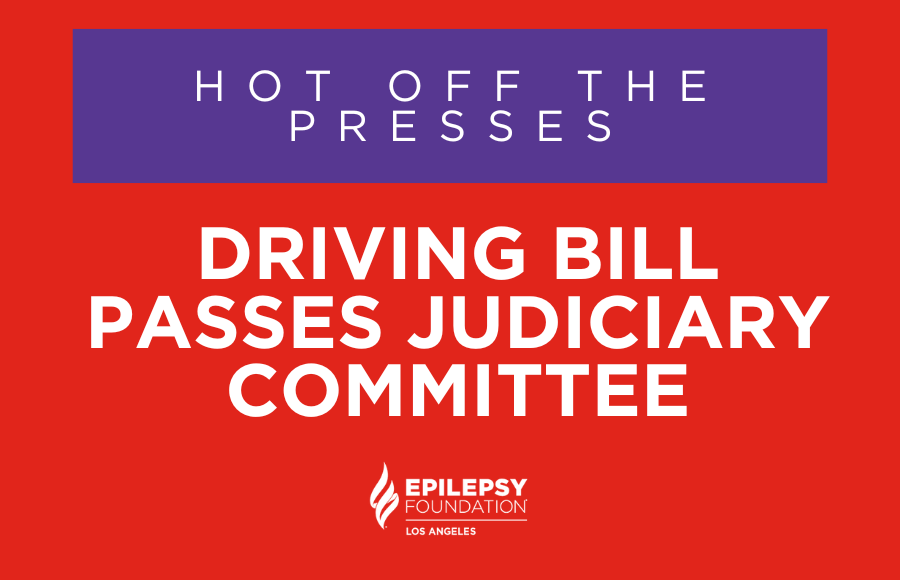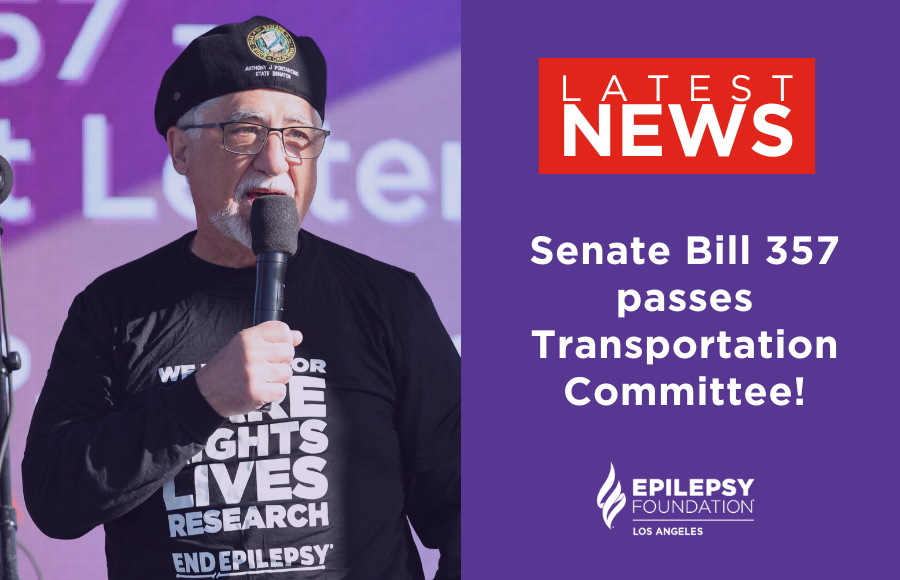For Immediate Release: April 26, 2023
Contact: Lerna Shirinian, (818) 409-0400
Senator Portantino Bill Protecting Drivers with Epilepsy Approved by Senate Judiciary Committee
Sacramento, California – Senate Bill 357, authored by Senator Anthony J. Portantino (D – Burbank) was approved by the Senate Judiciary Committee. The bill gives doctors the discretion to report personal conditions they believe will impair a patient’s ability to drive. It further removes language that discriminates against specific conditions, including epilepsy.
“The discriminatory practice of mandatory reporting in California needs to be addressed,” stated Senator Portantino. “SB 357 protects drivers with epilepsy by improving the patient-physician relationship and allows individuals affected by epilepsy to seek the care they need without fear of losing their driving licenses.”
Epilepsy is the fourth-most common neurological disorder, affecting more than 3.4 million Americans and more than 425,000 Californians. Yet here in California, a 1957 state law discriminates against drivers with epilepsy and other conditions by requiring physicians to automatically report these drivers to the Department of Motor Vehicles. Research has shown that these requirements often result in patients withholding crucial information from their physicians and not seeking the care they need. This is due to fear of losing their right to drive. When a person with epilepsy withholds critical information from their doctor, they jeopardize their access to appropriate care, risking an increase of seizure activity or even a loss of seizure control.
SB 357 will:
- Give doctors the discretion to report conditions they believe will impair a patient’s ability to drive, by removing language that discriminates against specific conditions, including epilepsy;
- Allow but not require doctors to make such reports;
- Protect the doctor-patient relationship by providing immunity for physician for either reporting or not reporting patients.
SB 357 will also require the California Department of Motor Vehicles (DMV) to publish a report by 2027 on the differences in patterns of reporting and crash rates under a voluntary reporting system. The bill will add a sunset on the voluntary reporting system for 2029.
“We thank Senator Portantino for authoring this important legislation that will protect the doctor-patient relationship, improve access to care for people with epilepsy and end decades of discrimination against the more than 425,000 Californians living with epilepsy.” said Rebekkah Halliwell, Executive Director of Epilepsy Foundation Los Angeles. “Based on an outdated law from 1957, California requires doctors to report all patients with epilepsy to the DMV, but research has shown that mandatory reporting requirements may lead people with epilepsy to withhold crucial information from their doctors, risking an increase in seizures, which can lead to injury and even death. People living with epilepsy should be able to seek care from their doctors without fear of losing their driver’s licenses. We are hopeful that this important measure, which will still allow doctors to identify any patient they believe might not be able to drive safely, will continue to move through the legislative process.”
###

 Languages
Languages







